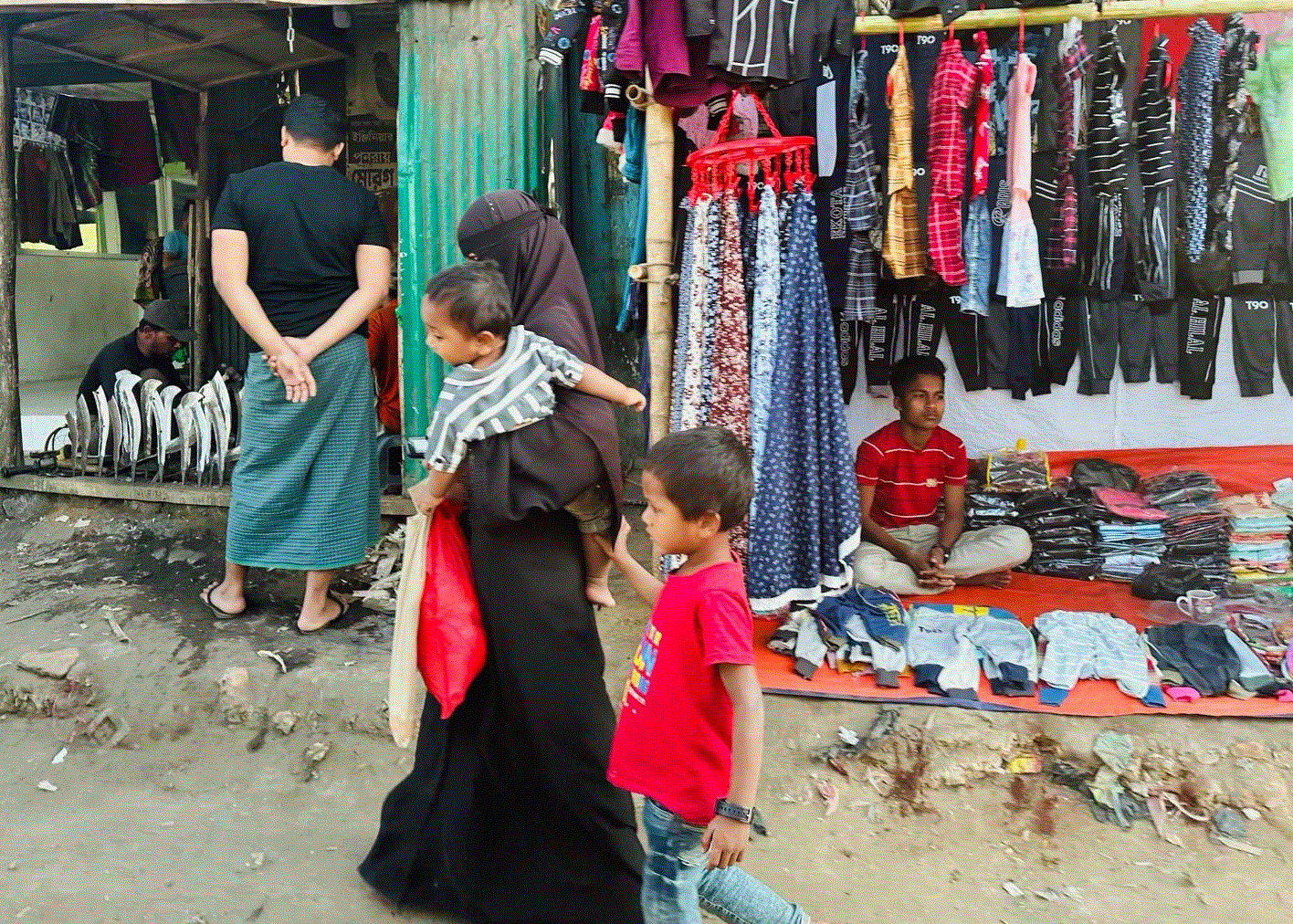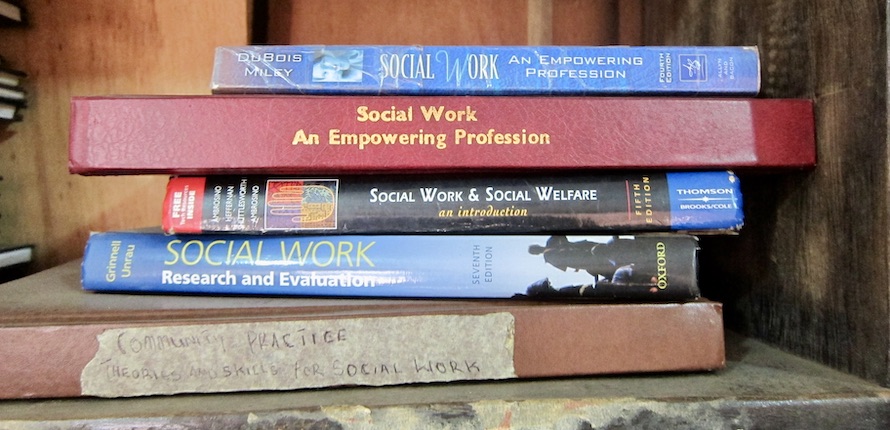We use cookies on this site to enhance your experience.
By selecting “Accept” and continuing to use this website, you consent to the use of cookies.
Search for academic programs, residence, tours and events and more.

Pregnant women and their families are particularly affected by war, facing violence, displacement to unfamiliar surroundings, disruptions of social support systems, and lack of access to basic needs. Although all war-affected populations may experience stress associated with conflict, flight, and displacement, pregnant women may suffer from this stress differently, as they find themselves struggling to meet the needs of their family while also meeting their own psychosocial and physical needs.
The perinatal period—pregnancy through one year postpartum—is a critical time for all family members. The transition to parenthood and the addition of a new family member may bring stress upon a family that is already struggling to cope with the challenges of war and displacement. Events during this time may significantly impact young children’s ability to grow, learn, and thrive. In times of extreme adversity such as war and displacement, mothers, fathers, and other family members are important mediators of family wellbeing. Yet little attention has been given to family experiences in such challenging contexts.
This research will focus on one of the most persecuted ethnic minority groups in the world, Rohingya families who have been forced to flee their homes in Myanmar to seek safety in neighboring Bangladesh. With its focus on women and families during the perinatal period and strong track record as a respected international organization, The Hope Foundation for Women and Children will act as the primary community partner for this project.
Using a methodology that combines collaborative family interviews and life story boards, this study will highlight the role of cultural practices and social supports in impacting family wellbeing from the perspective of mothers, fathers, children, and extended family members.
Project objectives are to:
Funding Source: SSHRC Insight Grant

Pregnancy loss is an under-researched and under-discussed topic, especially in war-affected contexts. Pregnancy loss—at any stage of pregnancy—may indicate physical health issues and result in negative mental health outcomes. Combined with other losses, pregnancy loss can have a destabilizing impact on the war-affected family, which is already struggling under multiple adversities.
Using a qualitative approach, this project will explore pregnancy loss among 10 Syrian refugee families resettled in Lebanon. In-depth understanding will be gained of the meanings mothers and fathers give to the experience of pregnancy loss. The role of social support in ameliorating the negative impacts associated with pregnancy loss in the context of war, flight and, displacement will also be examined.
Interviews with practitioners who work directly with pregnant Syrian refugees and their families will be carried out to provide an additional understanding of the context within which pregnancy loss occurs. Speaking to community practitioners will contribute to more effective practice and policy recommendations.
Funding source: SSHRC Insight Development Grant
(Ontario Cohort)

Research with war-affected populations tends to focus on individual effects, with family experience rarely considered. Yet, family is highly correlated with individual wellbeing, therefore influencing life course outcomes. Without an understanding of how displacement and resettlement impact family systems, practice and policy cannot adequately address the challenges facing these families and their communities. This research project uses innovative place-based and family-centered methodologies to generate knowledge about the war, displacement, and resettlement experiences of 40 refugee families now living in Canada.
Families will be able to share their experiences by participating in collaborative family interviews with additional activities of mapmaking, GPS-tracked neighbourhood walks, and GPS tracking of everyday mobility.
The project will also directly involve war-affected youth through their participation in a Youth Council. The Youth Council will provide feedback on the research design, data analysis, and meaningful ways to share results with the community. The Youth Council will consist of at least four members between the ages of 16-25 who have resettled in Canada after fleeing their country of origin due to war.
Visit our previous research project, outofplaceresearch.com, to learn about the experiences of Syrian refugee families displaced to Lebanon.
Funding source: Ontario Ministry of Research, Innovation, and Science Early Researcher Award

Displacement and resettlement can be a destabilizing experience for war-affected families, exacerbating feelings of isolation and detachment. Refugee families arrive in the receiving country after facing a variety of challenges ranging from traumatic stress reactions related to living in a war-affected context to stress during displacement journeys. Displacement and resettlement in an unfamiliar place far from their country of origin has important impacts on virtually every aspect of families’ socio-spatial environments including cultural norms, religious traditions, and support networks. Despite the importance of both the social and physical environments in supporting wellbeing and belonging among refugee families, programs and policies that assist in the resettlement of refugee families often do not explicitly address elements related to place.
A narrative review was conducted focusing on socio-spatial initiatives that help war-affected families to maintain their cultural identities and connections with their country of origin and establish a new sense of belonging in their communities of resettlement. We identified relevant sources from 2012-2022 reviewing academic literature, policy documents, and key resources recommended by experts and local newcomer-serving organizations. Synthesizing knowledge on refugee belonging from family-centred and place-based sources revealed a dearth of publications with a socio-spatial focus. Nonetheless, our review underscores the potential of this focus for informing practice and policy considerations in pursuit of greater refugee family belonging and wellbeing in the global context of an emerging asocial society.
Read the full report and policy brief.
Funding: SSHRC Knowledge Synthesis Grants: Emerging Asocial Society

Though diverse in context and geography, the importance of home is universal. No matter where in the world a person is from, both the idea and the physical space of home is central to their security, sense of self, and wellbeing. What are the impacts of loss of home upon children, adults, families, communities, and societies?
This project examines domicide—the intentional destruction of home—by documenting the types and examples of domicide in the newly released book, website, and future symposium. Domicide has wide-ranging personal and rights implications. The loss of a home means so much more than simply the loss of a structure. It is the loss of a central pillar of life.
Funding: Research Support Fund of Wilfrid Laurier University

The global social service workforce encompasses not only the social work profession but also the broader social service workforce, defined as “a variety of workers—paid and unpaid, governmental and nongovernmental—who make the social service system function and contribute to promoting the rights and ensuring the care, support, and protection of vulnerable populations” (GSSWA, 2015, p. 5). This expanded conceptualization has helped to open efforts to strengthen the global social service workforce beyond those who have been trained in professional schools of social work. Efforts to strengthen the global social service workforce have included the development of a social service workforce strengthening framework and the launch of the Global Social Service Workforce Alliance (GSSWA) in 2013.
A first step towards strengthening the social service workforce is to understand its global scope. To that end, over the past five years, multi-country mapping exercises have been conducted to better understand the situation of the social service workforce, including education and training, in various countries, especially in low- and middle-income countries.
While these efforts do much to build an understanding of the social service workforce and related needs, there remains a weak evidence base on ways to strengthen the social service workforce. This research project builds on the mapping exercises to fill this gap.
Funding: UNICEF, CPC Learning Network, Terre des Hommes
Contact Us:
Bree Akesson, Associate Professor, Faculty of Social Work
Karen Frensch, Research Manager, Global Adversity and Wellbeing Research Group